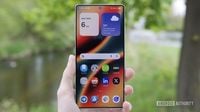A California jury has delivered a significant blow to Google, ordering the tech giant to pay over $314.6 million to Android smartphone users in the state for collecting and using their data without consent. This ruling, handed down on July 1, 2025, in San Jose, marks the culmination of a class-action lawsuit that began in 2019 and represents roughly 14 million Californians.
The lawsuit accused Alphabet-owned Google of gathering data from Android devices even when they were idle, a practice that plaintiffs described as "mandatory and unavoidable burdens shouldered by Android device users for Google's benefit." According to the legal complaint, Google programmed Android phones to transfer data to its servers while users were not connected to Wi-Fi networks, effectively consuming cellular data plans that customers were paying for. This covert data collection was said to benefit Google’s corporate interests, including enhancing targeted digital advertising and expanding its mapping capabilities.
Plaintiffs argued that Google’s data transfers occurred silently and without users’ permission, even when devices were tucked away in purses, pockets, or resting idle on nightstands. The complaint further alleged that these transfers sometimes happened after users had closed Google apps, underscoring the involuntary nature of the data usage.
Glen Summers, an attorney representing the plaintiffs, praised the verdict, stating, "The outcome forcefully vindicates the merits of this case and reflects the seriousness of Google's misconduct." His remarks highlight the legal and ethical concerns raised by the case regarding user privacy and consent.
Google, however, has vowed to appeal the ruling. Company spokesperson José Castañeda expressed strong disagreement with the jury’s decision, calling it "a setback for users," and argued that the verdict "misunderstands services that are critical to the security, performance, and reliability of Android devices." Castañeda emphasized that the data transfers in question are necessary to maintain the proper functioning of billions of Android devices worldwide and consume less cellular data than sending a single photo.
Google also maintained that Android users consent to these data transfers through multiple terms of service agreements and device settings options. The company insists that no harm has come to users as a result of the data collection practices.
Nevertheless, plaintiffs countered that Google deliberately designed its systems to make it impossible for users to completely disable these passive data transfers. They noted that Apple’s iOS devices send far less information via such transfers because they offer users greater control over data sharing, suggesting a stark contrast in privacy protections between the two platforms.
This California case is not isolated. A separate federal lawsuit with similar claims has been filed on behalf of Android users in the remaining 49 states. That case is scheduled to go to trial in April 2026 in San Jose. The ongoing legal battles underscore a broader scrutiny of how tech companies handle user data and what constitutes valid consent in the digital age.
Adding to Google’s legal challenges, earlier in May 2025, the company agreed to pay more than $1.37 billion to resolve lawsuits filed by the Texas Attorney General concerning alleged illegal tracking and collection of users’ location data, biometrics, and Incognito mode searches. That case began in 2022 and highlighted concerns over privacy violations beyond just data usage on Android devices.
The California verdict and the pending federal trial reflect mounting pressure on major technology firms to be more transparent and accountable with user data. For millions of Android users, the case raises critical questions: how much control do they really have over their personal information, and what costs—both financial and privacy-related—are they unknowingly bearing?
As the tech giant prepares to appeal, the legal community and consumers alike will be watching closely to see how these issues unfold. The case could set important precedents for privacy rights and corporate responsibility in an era increasingly defined by digital data.


